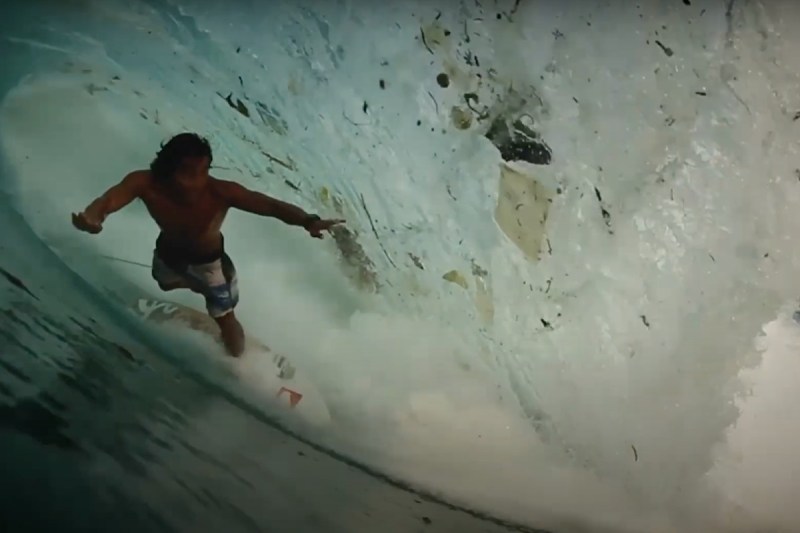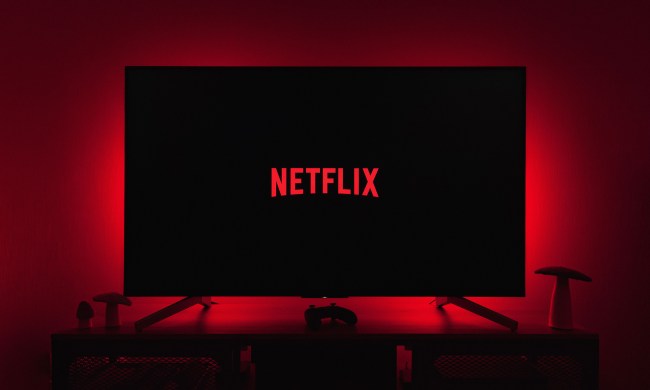Have you ever seen a surfer riding through a wave of garbage? If not, you have yet to tune into Journey to a New Earth, an eight-part series aired on Outside TV and Fuel TV.
These episodes are the first of several documentaries in development produced to raise awareness of the environmental impact generated by non recyclable packaging that ends up in the world’s waterways. Shared through the first-hand accounts of some of the world’s most recognizable surfers, the program feeds the greater mission of A New Earth Project, launched by Atlantic Packaging, the country’s largest privately-owned packing company.
Superstars surfers like Kelly Slater appear in the series while pro standouts like Kai Lenny, Vaihiti Mahana, Carlos Munoz, and Koa Smith serve as global advocates, the public faces leading Atlantic Packaging’s collective mission to eliminate plastic pollution from the world’s oceans, lakes, and rivers. Surfing was a prime driver that motivated the packaging company’s president, Wes Carter, to found this growing coalition in 2021. Since that time, Atlantic has made curbside recyclable packaging products more accessible to businesses and consumers.

“Surfing has given me the unique opportunity to travel and see first-hand the devastating impact single-use plastics are having on our oceans,” Lenny said in a release. “That’s why partnering with A New Earth Project and lending my voice to the conversation about the importance of sustainable packaging for the health of our planet is truly important to me.”
As an outdoorsman himself, Carter realized he could use his significant voice as an industry leader and a long running enthusiast.
“As a lifelong surfer and fisherman, I’ve spent my life traveling to these places,” Carter said. “I began to see in Indonesia, Hawaii, the west coast of Africa, things getting worse and worse and packaging was a big part of that.”
As a major player in this supply chain, Carter knew that Atlantic Packaging could be a large part of constructive change.
“This was the catalyst for A New Earth Project and is at the heart of this strategic collaboration,” Carter said to The Manual. “Atlantic Packaging has a seat at the table with the largest consumer product companies in the world. We are in a unique position of having both the ability, and what I believe is the responsibility, to drive the changes that must occur.”
Drawing on Atlantic Packaging’s 75-year history, this initiative not only drives awareness, but it delivers tangible solutions through the New Earth Approved catalog, a collection of products and capabilities that align to key sustainability measurements, including renewable resource manufacture and 100% curbside recyclable materials that aren’t harmful to wildlife or ecosystems.
The New Earth Approved catalog brings the purchasing power and delivery capabilities of Atlantic Packaging to businesses of all sizes. This began, of course, with surfboards. Atlantic Packaging now partners with three of the largest board makers, including Pyzel Surfboards.
“We have been shipping so many boards directly to peoples’ homes, and the amount of plastic we were using was overwhelming,” Jon Pyzel, founder of Pyzel Surfboards, said in a release. “We knew this was a big issue, and that we had to do something about it.”
Atlantic Packaging, via A New Earth Project, provided them with a solution: The S3 Pro System, which offers enough materials to pack and ship 30 surfboards without plastic.
“When the team at A New Earth Project came back with the S3, it gave us the ability to remove all single-use plastic from our surfboard shipping system and replace it with a fully curbside recyclable option,” Pyzel said. “This shift makes our packaging a meaningful brand attribute and signals to our customers that we are doing our part to be more sustainable.”
In addition to the surf packages, New Earth now offers fiber-based mailers, paper-based protective sleeves, biodegradable paper, and more. Not only is Atlantic Packaging pushing this green paradigm, but it’s also serving as an example of a rapidly improving packaging industry.
“In my 20 plus years in this business, I’ve never seen this much innovation energy because of sustainability. Everybody is trying to create new sustainable solutions,” Carter said. “20 to 30% out of the 40 to 50 green products weren’t even available 10 years ago.”
Though there’s significant ocean pollution on a multitude of the world’s beaches, this massive shift toward reducing packaging’s environmental impact provides hope for positive change for Carter.
“It starts here at home in the United States. I see a clear path, but the question is, can we get there quick enough?” Carter asked. “This should be our generation’s moon landing. We’re not focused on if we can get there — we have to get there. There’s no other option.”



